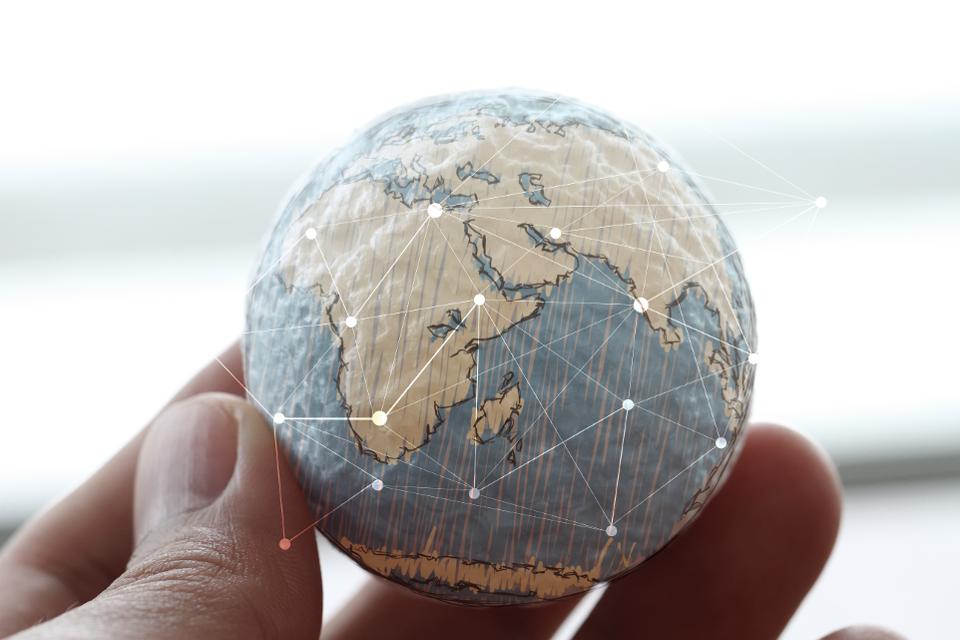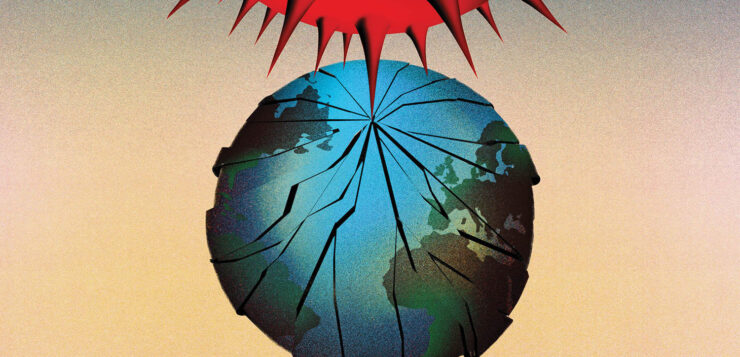HEC Paris Insights Contributor Leadership Strategy

Many executives, who believed our business environment was ripe for disruption, expected that an earthquake was about to hit and alter the global economy. But such waves are by definition hard to see before they materialize. Very few of these leaders anticipated that it would take the form of a pandemic that would force the world to shut down – with the notable exception of Bill Gates.
The short-term consequences of this health crisis are spectacular and unprecedented: The pandemic is far-reaching in time and space, with every individual, every business and every industry likely to feel its impact.
But will this health crisis be a game-changer whose ripple effects are long-lasting and transformational? Several analysts and politicians dispute this notion. In fact, the temptation to go back to business as usual and to reopen economies remains strong. And it will be very hard to resist this temptation if a vaccine is discovered or we find another way to live with the COVID-19. Justifiably so. (For more on this, please follow my webinar on the implications of the crisis for globalization.)

The Ultimate Challenge To globalization?
However, the counterargument is as strong. It is particularly striking that this health crisis has further challenged four basic principles of globalization that the business community once considered as engraved in stone although they were already under pressure before this health earthquake occurred
First, the guarantee of freedom of movement for goods and people. The rise of populist sentiments across the globe has put a brake on free trade. This pandemic is further limiting our ability not only to trade and to go abroad, but also to move around in our own countries.
Second, there was the notion that the Internet provides access to all the accurate information we need to make educated decisions. With the mushrooming of virus-induced fake news, transparency is taking a big hit. Questions regarding the timeline of the epidemic, the number of victims and the treatment needed to tackle this health crisis suggest that we are nowhere near the information transparency we aspired to. And this may have profound political implications.
Third, we believed that public authorities would always have the legitimacy they needed to act. But political polarization across the globe has undermined that legitimacy significantly over the years. For the Edelman Barometer, “none of the four societal institutions that the study measures—government, business, NGOs and media—is trusted”! This crisis has increased mistrust even further as a large number of governments seem unable to manage the crisis in a timely manner that does not involve an economic shutdown.
Last, we often believed (or hoped) that historical change is linear and predictable, leaving us with time to adapt. However, the 2016 votes for Brexit and Donald Trump may be seen as the turning points, or at the very least, an indisputable challenge to this notion. Both are key illustrations of recent political ruptures. The recent drop in GDP and rise in unemployment figures in Europe and in the United States (which is very hard to compare to previous spikes during past crises), tend to suggest that we are entering a new paradigm, or, at the very least, a time in which a crisis has consequences that are more far-reaching than in the past. Commenting on this health crisis, French President Emmanuel Macron has already stated that “business as usual” is not an option when we come out of this crisis.
The New Normal
Admittedly, the health crisis may not challenge all these principles at the same time. There may still be room for recovery, and opportunities for cooperation may arise – as they already have sporadically.
However, a reversal of any one of these four principles (freedom of movement, transparency, legitimacy and linear change) would be a game-changer that would challenge some of the foundations of globalization as we know it today. You could always argue about how significant the change will be, or the extent to which companies and other economic stakeholders will try to continue to operate under “normal” assumptions about a single, integrated, global market. But, ultimately, those assumptions could appear increasingly skewered.
This explains why outsourcing is likely to become, once again, a key debating point in business. This is not to say that the answers are obvious, but the questions certainly are: do the benefits of outsourcing, namely lower costs, always outweigh the environmental costs and the risks of having key parts of your supply chain so far away? Does this make sense for some supply chains to depend significantly on any part of the globe? You can expect this question to be at the heart of coming discussions over the long-term implications of the virus.
This also does not mean that the single, integrated, global market will disappear any time soon. Nevertheless, there may be a debate about when it makes sense to rely on it. Actors that invest resources in products and services that are hard to emulate and that are truly unique are likely to do better than their competitors. What is impossible to get elsewhere (including locally), and when is it more efficient to rely on local resources are two guiding questions in this new normal.
Finally, this health crisis also suggests that shared value is not a myth. Many companies now understand that if they do not invest in their local ecosystems, these may rot from within. This would have an immediate impact on their productivity and their ability to thrive – and, ultimately, even to produce and sell. There is no necessary contradiction between societal and business interests. Our ability to reconcile both may play a key role in our ability to bounce back and face coming earthquakes that may be even more challenging.
Jeremy Ghez is a Professor of Economics and Decision Sciences at HEC Paris.





